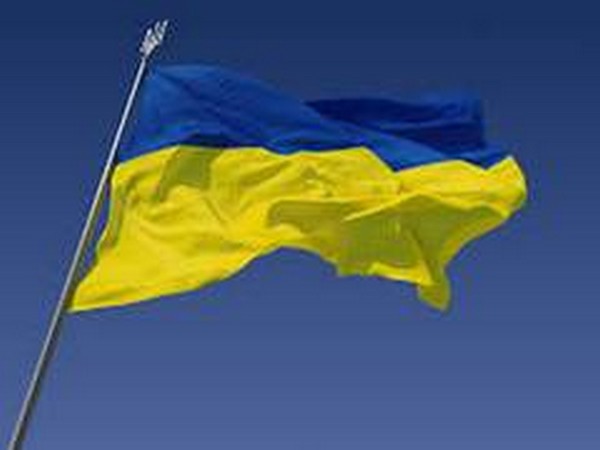WRAPUP 3-Ukraine slams Putin plan to station Russian nuclear weapons in Belarus
A top security adviser to Ukrainian President Volodymyr Zelenskiy said on Sunday that Russian plans to station tactical nuclear weapons in Belarus would destabilise that country, which he said had been taken "hostage" by Moscow.

- Country:
- Ukraine
A top security adviser to Ukrainian President Volodymyr Zelenskiy said on Sunday that Russian plans to station tactical nuclear weapons in Belarus would destabilise that country, which he said had been taken "hostage" by Moscow. Russian President Vladimir Putin announced the decision on Saturday, sending a warning to NATO over its military support for Ukraine and escalating a standoff with the West.
Although the move was not unexpected and Putin said it would not violate nuclear non-proliferation promises, it is one of Russia's most pronounced nuclear signals since the beginning of its invasion of Ukraine 13 months ago. Oleksiy Danilov, head of Ukraine's National Security and Defence Council, called it "a step towards internal destabilization" of Belarus, adding it maximizes what he called the level of "negative perception and public rejection" of Russia and Putin in Belarusian society.
"The (K)remlin took Belarus as a nuclear hostage," he wrote on Twitter. Putin likened his plans to the U.S. stationing its weapons in Europe, and said Russia would not be transferring control of the weapons to Belarus.
"We are not handing over (the weapons). And the U.S. does not hand (them) over to its allies. We're basically doing the same thing they've been doing for a decade," Putin said. However this could be the first time since the mid-1990s that Russia has based such weapons outside the country. Experts told Reuters the development was significant, since Russia had until now been proud that unlike the United States, it did not deploy nuclear weapons outside its borders.
Another senior Zelenskiy adviser on Sunday scoffed at Putin's plan, saying the Russian leader is "too predictable". "Making a statement about tactical nuclear weapons in Belarus, he admits that he is afraid of losing & all he can do is scare with tactics," Mykhailo Podolyak tweeted.
Washington, the world's other nuclear superpower, played down concerns about Putin's announcement and the potential for Moscow to use nuclear weapons in the war in Ukraine. "We have not seen any reason to adjust our own strategic nuclear posture nor any indications Russia is preparing to use a nuclear weapon. We remain committed to the collective defence of the NATO alliance," a senior U.S. administration official said.
The official noted that Russia and Belarus had been speaking about the transfer of nuclear weapons for some time. Tactical nuclear weapons refer to those used for specific gains on a battlefield rather than those with the capacity to wipe out cities. It is unclear how many such weapons Russia has, given it is an area still shrouded in Cold War secrecy.
Analysts at the Washington-based Institute for the Study of War (ISW) said the risk of escalation to nuclear war "remains extremely low". "ISW continues to assess that Putin is a risk-averse actor who repeatedly threatens to use nuclear weapons without any intention of following through," it wrote.
However, the International Campaign to Abolish Nuclear Weapons called Putin's announcement an extremely dangerous escalation. "In the context of the war in Ukraine, the likelihood of miscalculation or misinterpretation is extremely high. Sharing nuclear weapons makes the situation much worse and risks catastrophic humanitarian consequences," it said on Twitter.
PUTIN DECRIES A WESTERN 'AXIS' Putin said Belarusian President Alexander Lukashenko had long requested the deployment. There was no immediate reaction from Lukashenko.
While the Belarusian army has not formally fought in Ukraine, Minsk and Moscow have a close military relationship. Minsk allowed Moscow to use Belarusian territory to send troops into Ukraine last year and the two nations stepped up joint military training. Putin on Sunday also denied Moscow was creating a military alliance with Beijing and instead asserted that Western powers are building a new "axis" similar to the partnership between Germany and Japan during World War Two.
"That is why Western analysts...are talking about the West starting to build a new axis similar to the one created in the 1930s by the fascist regimes of Germany and Italy and militarist Japan," Putin said. This was a reprisal of a theme he has often used in his portrayal of the Ukraine war - that Moscow is fighting a Ukraine in the grip of supposed Nazis, abetted by Western powers menacing Russia.
Ukraine - which was part of the Soviet Union and itself suffered devastation at the hands of Hitler's forces - rejects those parallels as spurious pretexts for a war of conquest. On the battlefield, Russian forces hit military targets in Kharkiv, Donetsk, Zaporizhzhia and Kherson regions, causing significant Ukrainian casualties, Russia's defence ministry said on Sunday.
Ukrainian presidential chief of staff Andriy Yermak said Russian forces had also destroyed two apartment buildings in a missile strike on the eastern city of Avdiivka in the Donetsk region. He said there were no casualties. Ukraine's General Staff said on Sunday Ukrainian forces had repelled 85 Russian attacks over the past 24 hours across the eastern front, including the Bakhmut area, the scene of brutal fighting in the last few months.
Reuters could not immediately verify the battlefield reports.
(This story has not been edited by Devdiscourse staff and is auto-generated from a syndicated feed.)










